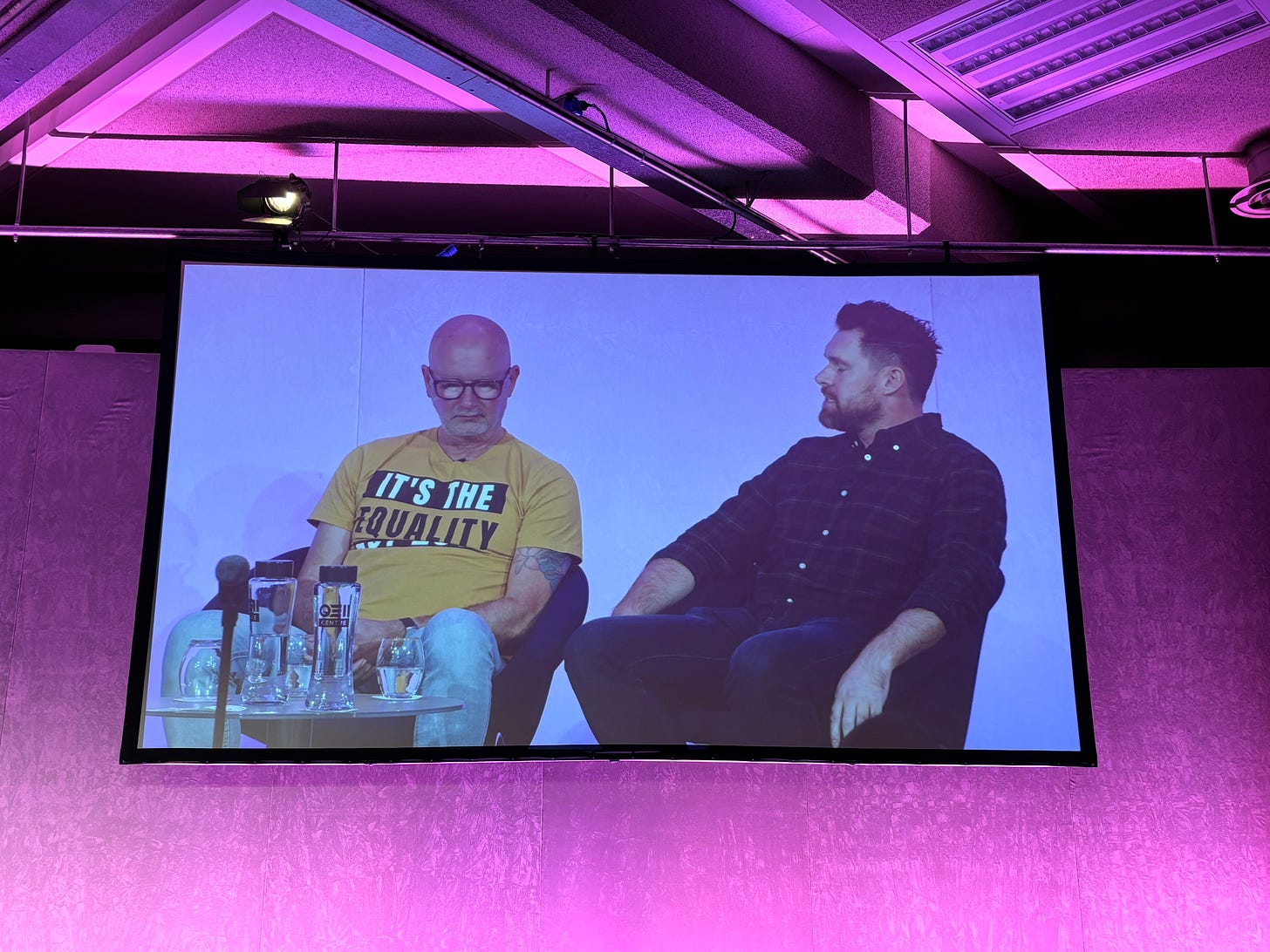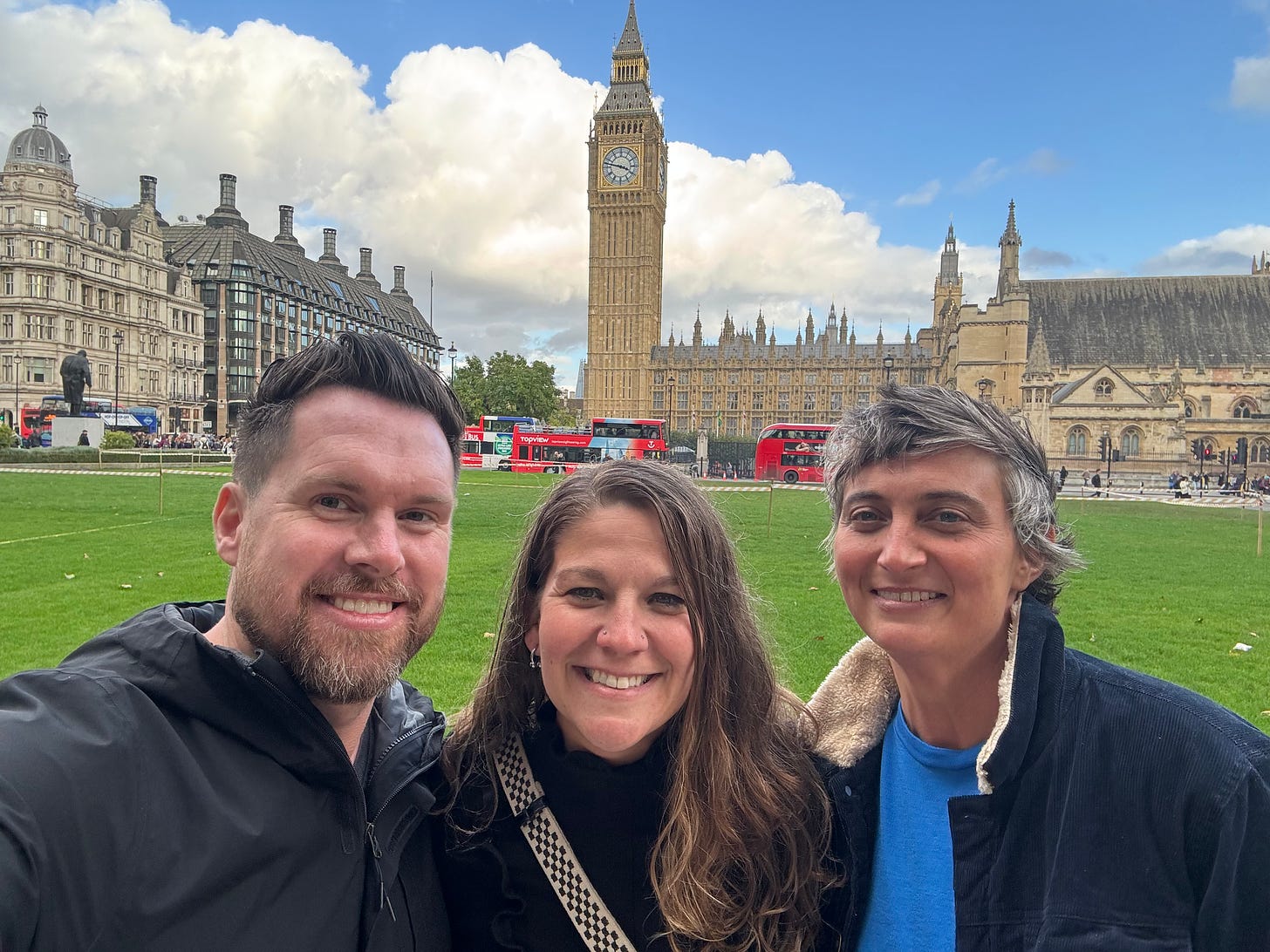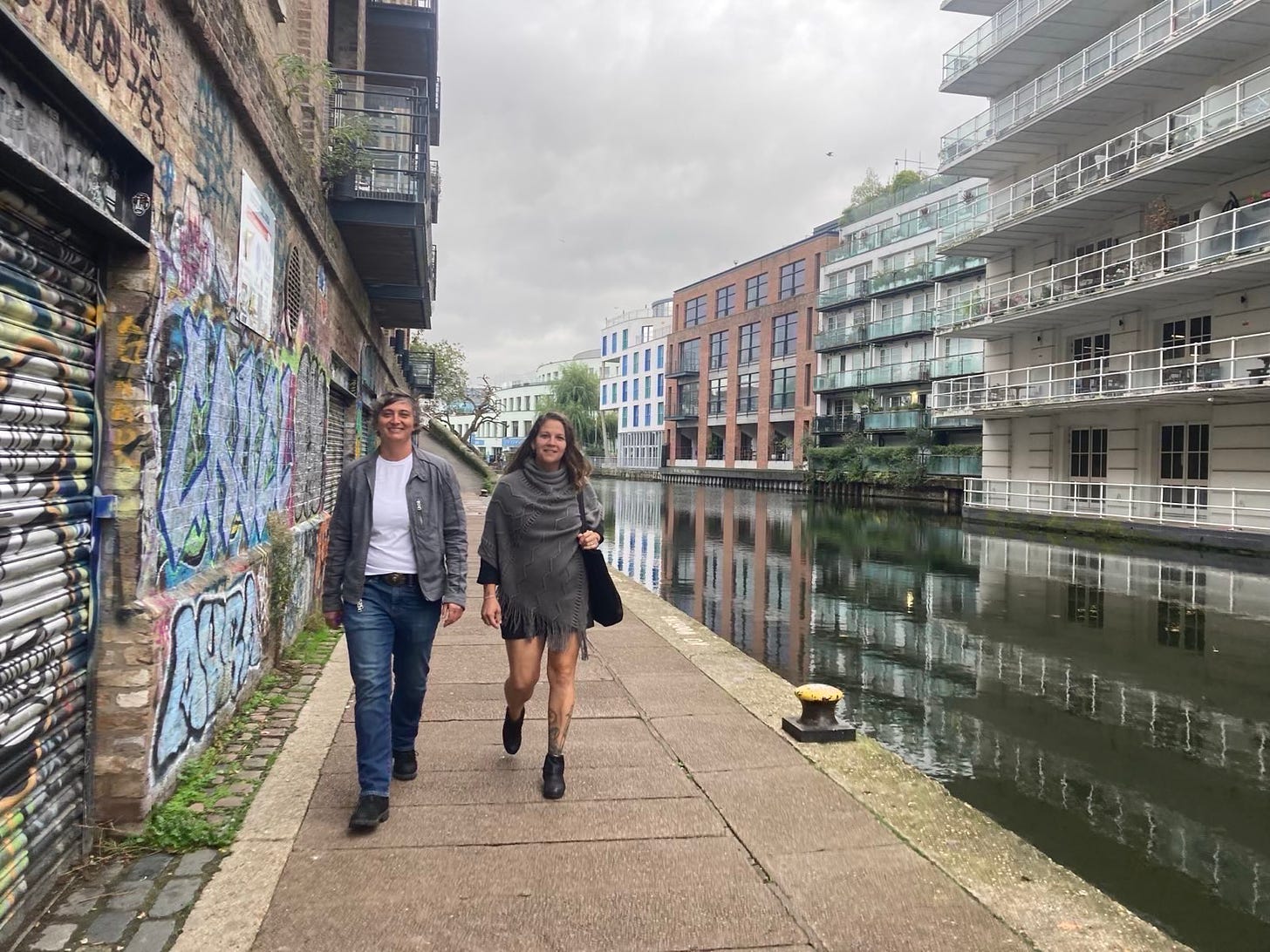An LGBT Courage Coalition Action Update: The Activist, the Journalist, and the Whistleblower
The LGBT Courage Coalition is at the forefront of resisting the medicalization of children, many of whom are autistic or gender-nonconforming. Over the past few months, three key figures—activist Lauren Leggieri, LGBT Courage Coalition Communications Director Ben Appel, and Executive Director Jamie Reed—have led the charge. This update explores their recent activism, including confrontations at major conferences, their fight to protect LGB youth, and their shared goal of stopping the transition of minors, which they view as a form of gay conversion therapy imposed on children too young to give informed consent.
Peaceful Civil Disobedience at the AAP Conference
In late September, Leggieri took direct action at the American Academy of Pediatrics (AAP) conference in Orlando, where Admiral Rachel Levine delivered the keynote speech. Leggieri interrupted the speech to confront Levine, saying, “Why did you pressure WPATH to remove age restrictions? How does that help children? Most gender-nonconforming kids grow up to be gay. Stop transing gay kids. You’re all complicit in homosexual conversion.” She was able to repeat her message several times before being escorted out by security.
Audio from the disruption is below.
This act of peaceful civil disobedience exemplifies what Leggieri sees as necessary to express the growing frustration within the LGB community over the medicalization of minors. She and the LGBT Courage Coalition believe that many of the children being transitioned are gay or lesbian youth who would otherwise grow up to accept their sexual orientation. For them, this isn’t just a fight against dangerous medical practices—it’s about protecting LGB youth from what they see as a new form of conversion therapy.
After being briefly detained and given a trespassing warning, Leggieri rejoined the fray outside the conference. She says her commitment to such protest tactics remains undiminished.
SEGM Conference in Greece: A Global Movement Takes Shape
Following the AAP conference, Leggieri and Reed flew to Greece to attend the Society for Evidence-Based Gender Medicine (SEGM) conference. For Reed, attending her third SEGM conference provided an opportunity to reconnect with international colleagues who are focused on reforming the treatment of gender dysphoria.
Reed describes the event as having been both encouraging and sobering and says that, despite some victories, so much work remains to be done. She says, “The hearts and minds of young people, their families, and even the medical community still need to change. Stopping puberty blockers and cross-sex hormones is just the beginning—there’s so much more to untangle.”
Both Reed and Leggieri see their roles as challengers to the current paradigm in gender medicine as crucial. Reed says, “We need to reach these kids and let them know they’ve been lied to, that they were taken advantage of. We have to be there for them when they realize the truth.”
Rallying the Global LGB Movement at the LGB Alliance Conference
After their time in Greece, Reed and Leggieri were joined by Appel in London for the LGB Alliance conference. Appel took part in the Sounding the Alarm panel, which focused on the role of writers and journalists in exposing the harms of pediatric gender medicine. He was joined by notable figures such as journalist and feminist activist Julie Bindel, ex-BBC producer Cath Leng, and novelist Simon Edge, whose work “The End of the World is Flat” offers a satirical take on the trans rights movement. The panel dissected the media’s tendency to stifle narratives that question pediatric gender procedures, spotlighting the growing antagonism faced by critics.
Appel highlighted how U.S. media outlets have largely ignored or downplayed the voices of those opposing pediatric transitions. He criticized organizations like GLAAD and the Human Rights Campaign (HRC) for their outsized influence on the discourse, often at the expense of gay and lesbian youth, saying, “These organizations have been captured by radical gender ideology. They’ve shifted away from protecting LGB rights and are now working directly against the interests of the gay and lesbian community.”
Reflecting on the atmosphere of the event, Leggieri says, “Almost every person there was gay or lesbian, regular gays and lesbians who understand the harm being done to our youth.”
Ben Appel on stage at the LGB Alliance Conference
The Cricket Disruption: Undeterred by Extremism
Reed’s talk at the LGB Alliance conference was disrupted by six young trans activists who released thousands of crickets into the packed room. Reed says, “They dumped their bags of crickets on the periphery of the room. If they had done it in the middle, it could have caused real chaos—people could have been trampled. But instead, they ran off, and we quickly realized what had happened.” Security responded swiftly, and the conference resumed shortly thereafter.
Leggieri adds, “They were set up outside with cameras, hoping to capture footage of everyone running out in panic. But that didn’t happen. They didn’t get the reaction they wanted.” Appel, who witnessed the activists fleeing, condemns the act as a “fascist tactic” aimed at silencing dissent. “They wanted to scare us, to create chaos, but it didn’t work,” he says. “If anything, it amplified our message.”
For Reed, the incident highlights a broader concern about the exploitation of young people by radical activists, saying, “These were kids. The same activists who claim they want to protect trans youth sent kids into this situation. It’s heartbreaking.”
Bringing the “T” Kids Back Into the LGB
A core tenet for Reed, Leggieri, and Appel is the importance of bringing those harmed by the “T” movement back into the LGB community. They are deeply concerned about the young people who have been misled into transitioning, some of whom now face the difficult process of detransitioning.
Leggieri is passionate about this issue, stating, “We need to bring these kids back into the fold. Most gender-nonconforming kids grow up to be gay. We can’t abandon them to this medical nightmare—we have to be there for them.”
Reed agrees, emphasizing that many of these gay or lesbian youth have felt pressured to join the trans movement as a way of coping with discomfort around their sexuality. “They’ve been told that transitioning is the solution, but it’s not,” she says, adding, “We need to help them accept their true identity and recover from the harm that’s been done.”
Appel’s comments, when asked about the split between the LGB and the T, are nuanced. “This is such a tough question. What’s important to understand is that “trans” isn’t a monolith. There are so many different reasons that people transition. My concern is the gay people who are made to feel like they have to identify as the opposite sex in order to properly fit into society.”
“We were really on the right track, I thought, in creating a world where there was no ‘right way’ to be a boy or a girl. I’m afraid that the progressive project has been derailed. Now, it’s so-called progressive groups that are promoting sex stereotypes. What I know is that autogynephilic adult males should not be dictating medical policies for gender-nonconforming kids, most of whom will grow up to be gay. That is a hill I will die on.”
Appel also deeply appreciates the adult trans people who have spoken out against the harm being done to young people. He says, “I’m grateful to anyone who respects material reality, really.”
For all three, the movement to stop the medicalization of minors is fundamentally a gay rights issue. They see their work as part of a larger effort to protect vulnerable youth from harmful ideologies and practices, and they remain committed to bringing those who have been harmed back into the LGB community.
Ben Appel, Jamie Reed and Lauren Leggieri in London, England.
The Road Ahead in the U.S.
Appel, who has been writing critically about the transgender movement since 2017, points out crucial differences between the U.S. and U.K. in addressing pediatric gender medicine. “The U.K. is ahead of us. They’ve had systematic reviews of their healthcare system that have shown the damage being done, and they’ve started to pull back. In the U.S., we’re lagging behind because our medical system is for-profit and deeply entrenched in these practices.”
He also feels that it’s important to criticize organizations like GLAAD and the Human Rights Campaign (HRC), which he says have been “captured” by radical gender ideology. “These organizations are working against the interests of gay and lesbian people. They’ve been co-opted by a movement that has nothing to do with protecting LGB rights.”
Despite these challenges, Reed, Leggieri, and Appel remain hopeful. The LGBT Courage Coalition is growing, and their message is gaining traction both in the U.S. and abroad. As Reed prepares for the U.S. Supreme Court oral arguments on December 4th, she sees this as a pivotal moment in the fight to protect LGB youth. “We need to be there,” Reed says. “We need to show that gay people are not okay with this. We need to say, ‘Stop transing gay kids.’”
Leggieri agrees, emphasizing the importance of grassroots activism: “The more people we have standing with us, the quicker this will end. We need more people to join us, to take a stand, and to fight for LGB rights once again.”
Lauren Leggieri and Jamie Reed in London, England
Interested adult gays and lesbians seeking to join the LGBT Courage Coalition can send an email to LGBTcouragecoalition@gmail.com. We are seeking volunteer writers, editors, video content producers, activists, and all around bad asses.










Thank you!!! I was a quintessential “Tom Boy” as a youth. Turned out that I was heterosexual but I KNOW I would’ve been medicalized had I been a teen today. It breaks my heart that young people don’t have that critical chance to discover for themselves who they will be - gay or straight. LOVE all that you’re doing. Thank you for standing up for the kids.
Keep it up ! LGB activism gives me hope for the next generations .